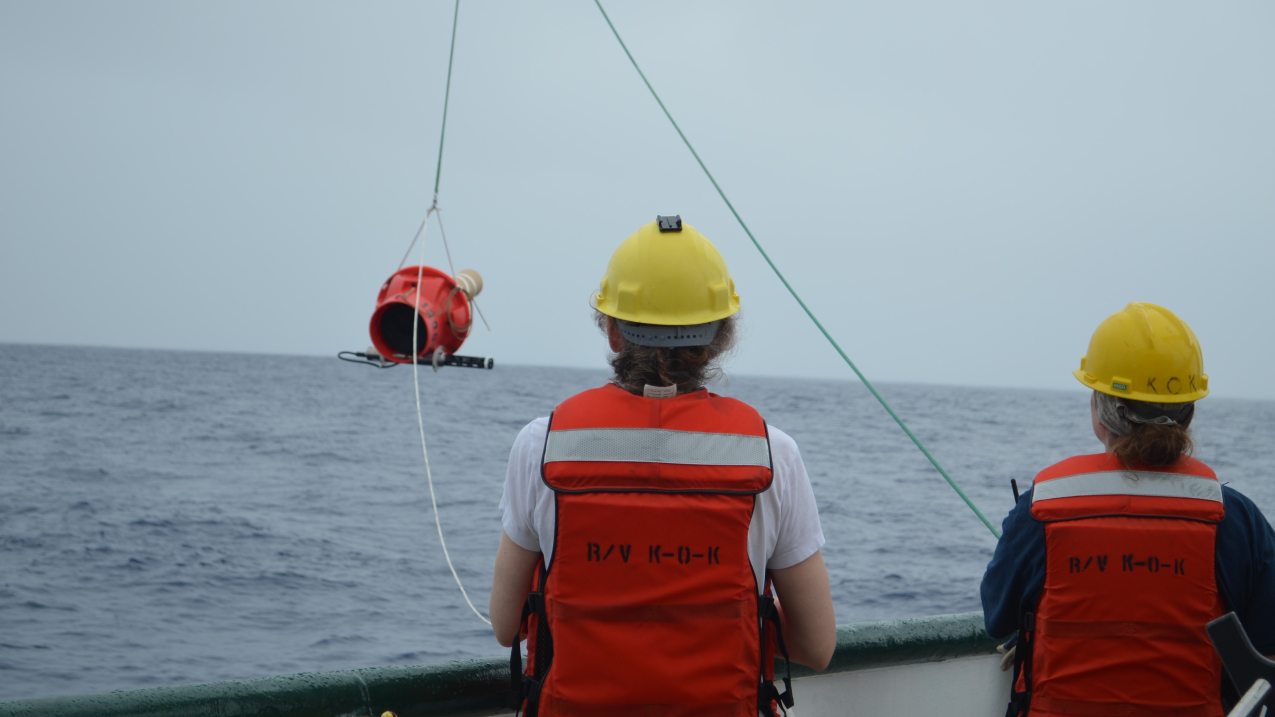Funding will support expansion of the Argo ocean observing system

NOAA Affiliates Dr. Elizabeth Steffen (left) and Marine Tech Elizabeth Ricci (right) deploy a Deep Sounding Oceanographic Lagrangian Observer (SOLO) Argo float from the R/V Kaʻimikai-O-Kanaloa in 2018. The Deep SOLO float was developed by the Scripps Institute of Oceanography Instrument Development Group (SIO IDG), and this was the first Deep SOLO float to be deployed by NOAA Affiliates. (Image credit: NOAA)




